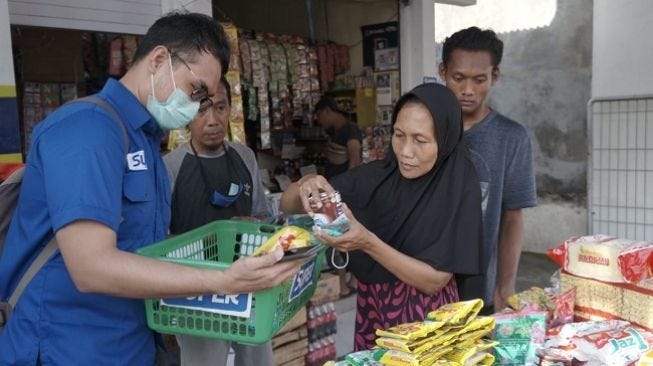Amasia invested in Super’s Series B round in April. The $28m round was led by SoftBank Ventures Asia. We led the Series A last year, and I serve on the company’s board of directors. Here I want to provide a bit more context for our involvement.
At Amasia, we invest in companies that help build a safer and more sustainable planet. Our thesis centers on driving positive climate impact through catalyzing behavioral change at scale. Human behavior (and the resulting carbon footprint) is the key driver of climate change. It is behavioral change at scale that got us here, and it is behavioral change at scale that will help us fight the climate crisis.
Our growing globalized consumption has created the need for an increasingly sophisticated supply chain with heavier carbon footprints. More than 90% of the consumer sector’s environmental impact can be traced back to the supply chain. Transportation activities, including aviation, rail, shipping and trucking, contribute to 17% of global greenhouse gas emissions. Heavy-duty transportation (aviation, heavy road transport, shipping), critical to the world’s supply chain, produced more than 4 gigatons of carbon dioxide in 2019 and is on track to emit 7 gigatons of carbon dioxide by 2050.
While there have been important sustainability-related hardware innovations in logistics, the supply chain remains a function of our consumption choices and behavioral change at scale is the key to greater sustainability. From taking action to offset our carbon footprint to choosing sustainable alternatives, we can alleviate climate impact along the supply chain by changing the way we consume.
Super helps us do just that.
Super is a social commerce platform in Indonesia, providing affordable access to basic consumer goods via its network of community-based agents and logistic centres.
In rural third and fourth tier Indonesian cities, where Super operates, basic consumer goods can be up to 20%-200% more expensive compared to tier-one cities. Poor rural infrastructure results in a supply chain bloated with multiple middlemen, each taking a margin, and retail stores in less populous communities are unable to buy at cheaper wholesale prices due to low volume.
Super disrupts the status quo by streamlining the existing supply chain and enabling group buying in rural Indonesian communities. Super’s agents, typically community leaders or small local retailers, collate orders from their communities and facilitate group buys via Super’s app. Aggregated orders are fulfilled via the company’s network of warehouses and Super centres (smaller, localized logistic centres), with the final local distribution managed by Super’s agents.
By reducing the carbon footprint (and resources) associated with getting goods from supplier to consumer, Super falls within our Sustainable Supply Chains theme. We look at the broader benefits as follows:
Super streamlines the existing supply chain with direct fulfilment and removes various intermediaries between producer and consumer. The company also operates in a data-driven manner, optimizing its logistics. This eliminates unnecessary delivery miles, and reduces the carbon footprint of its products.
Super also improves access to basic goods, catalyzing positive social impacts including improved health and general well-being. The firm collates orders from its extensive network of agents, and hence is able to offer wholesale prices despite small individual orders. Alongside logistic savings from a streamlined supply chain, this creates affordable access to basic consumer goods (e.g. personal care products) for local communities. Super’s business model also empowers its agents, who range from local retailers to members of the community, with employment and income growth opportunities.
Super brings a global lens to a local problem. While Super is an entirely Indonesia-focused company, it imports global best practices from its time in Y Combinator and through its partnership with Amasia and now with a great set of Series B investors.
I have written elsewhere -- and will continue to write -- about how the onus is really on the affluent West to dramatically change behavior to curtail emissions. We should be focusing on per capita emissions, not aggregates -- because in developing countries such as Indonesia, hundreds of millions of people are being lifted out of poverty and their energy consumption (and consumption in general) has to rise to get them to a position of greater well-being.
But what is not always well understood is that developing countries are engaging in “leapfrogging” behavior here, as was the case with other technology adoption cycles. Companies like Super are helping consumers in countries like Indonesia participate in supply chains that are far more efficient from the get-go. We are delighted and proud to support Steven and his team in this process.


